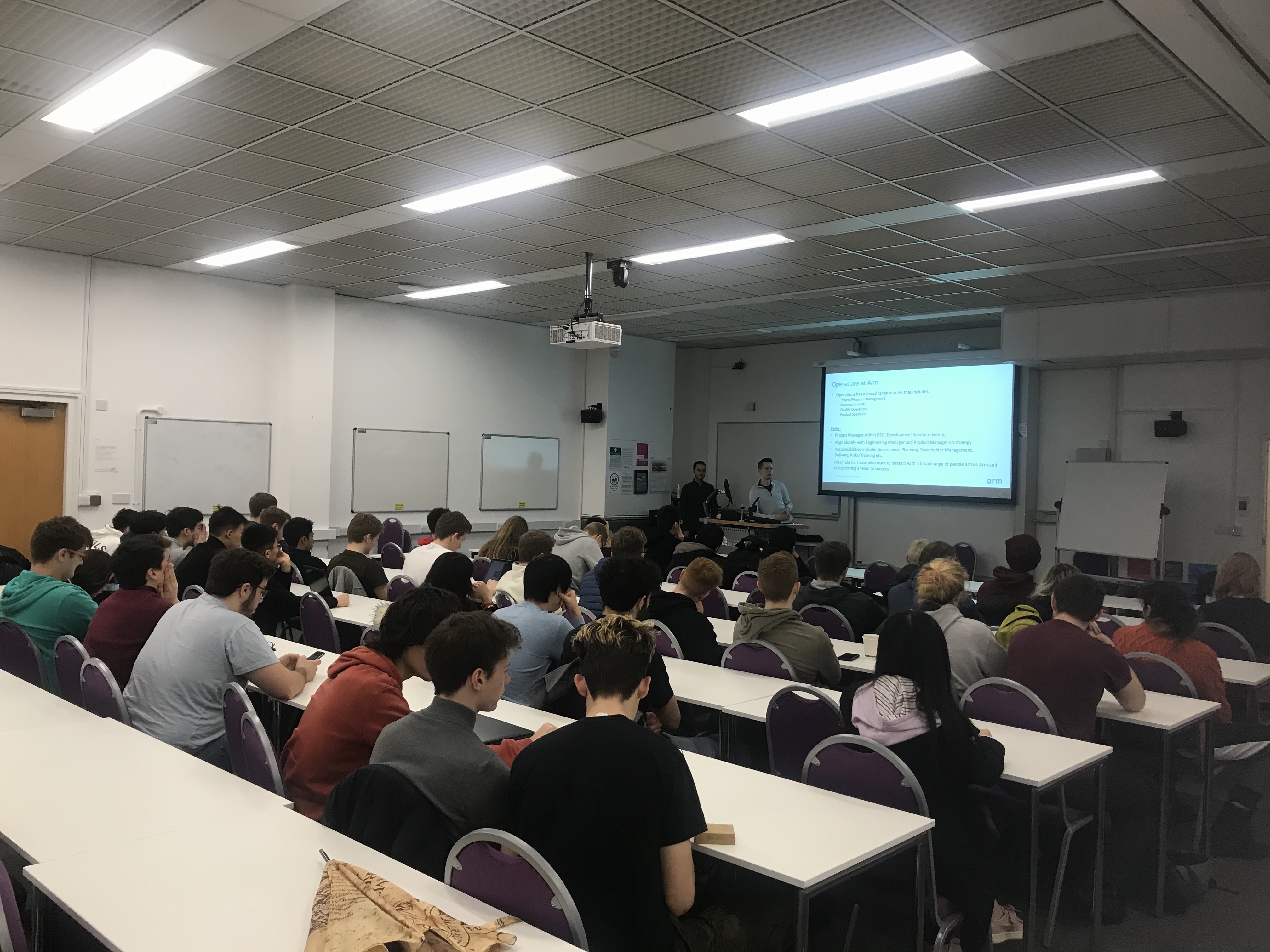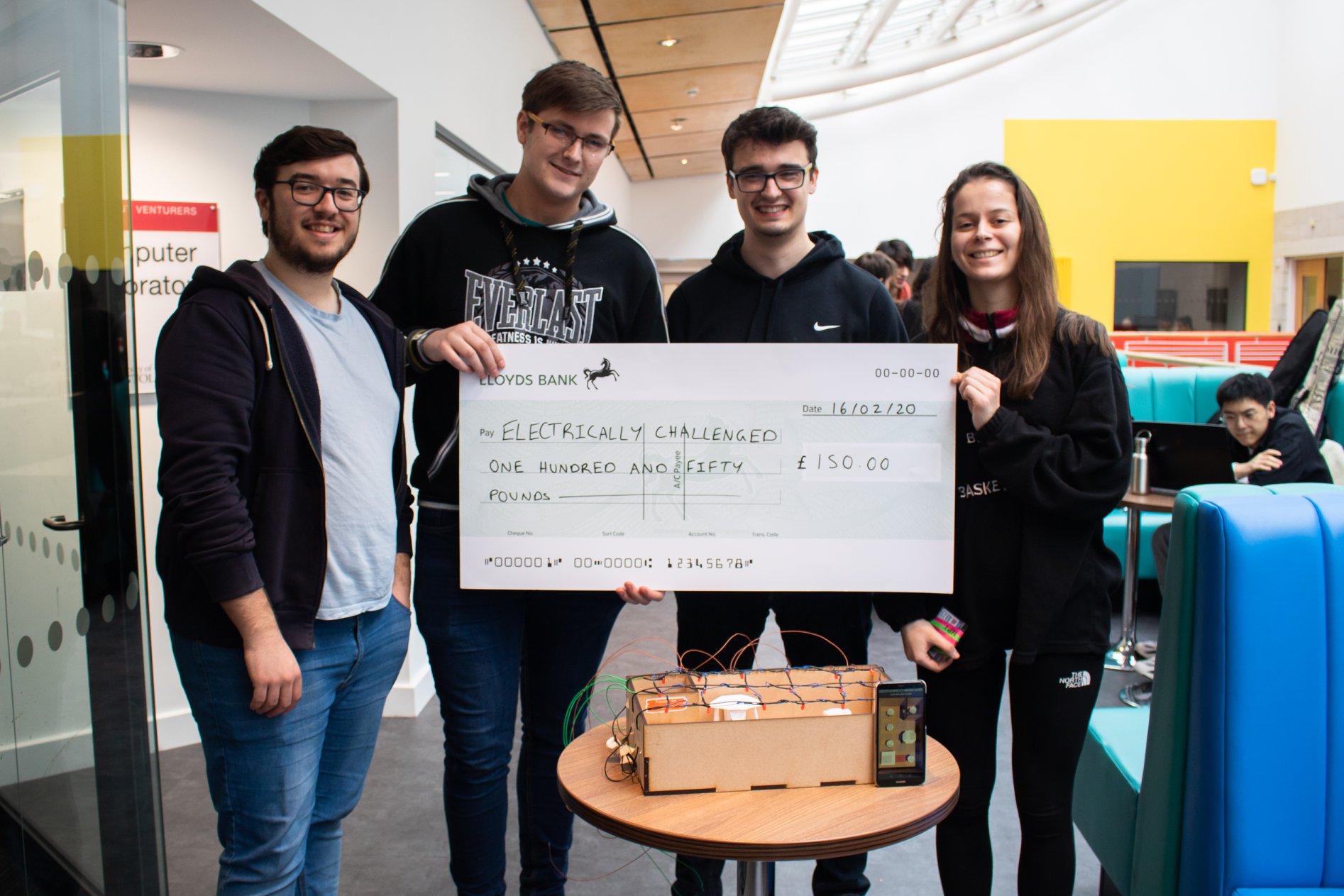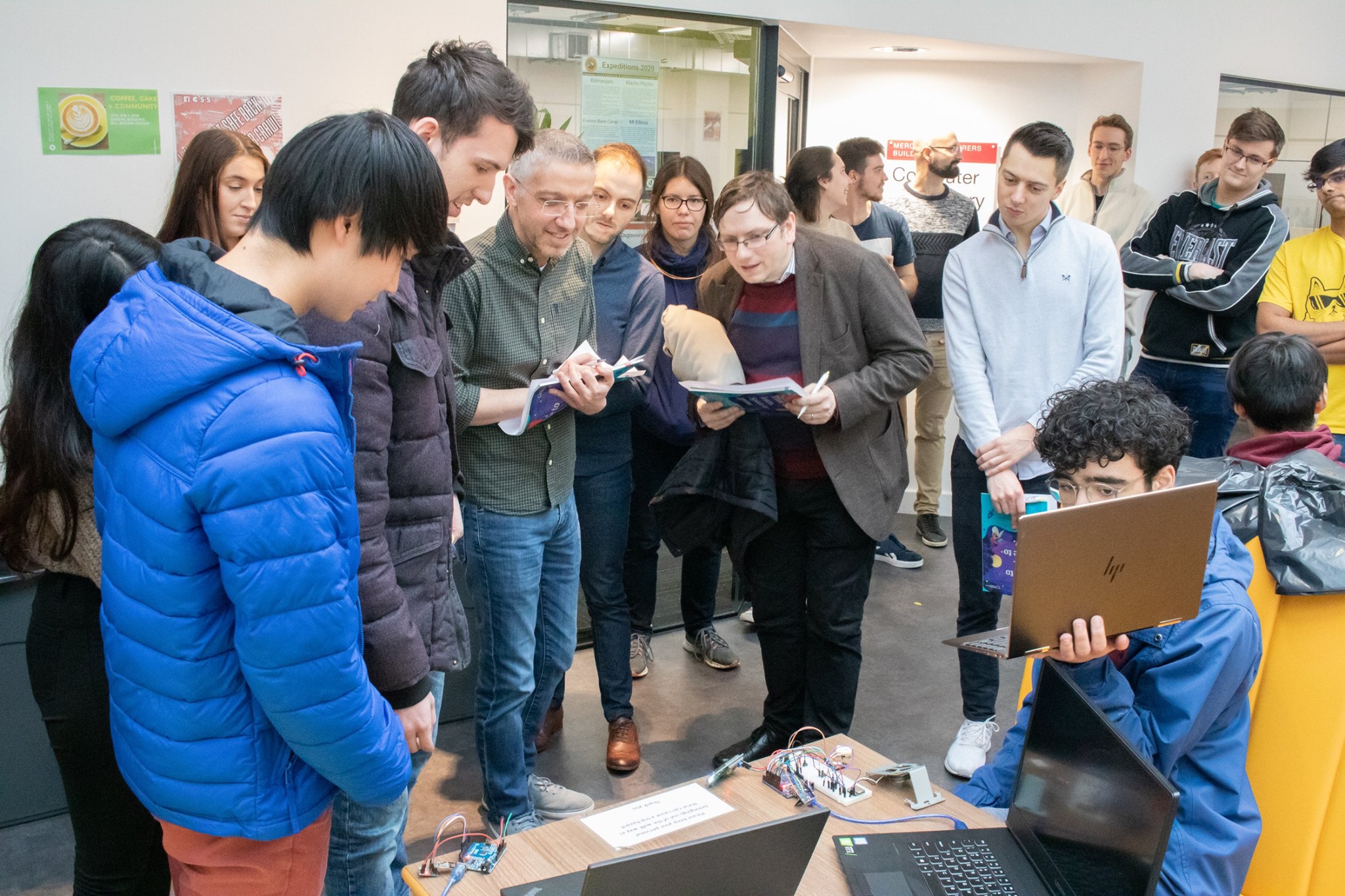
Bristol University Make-A-Thon 2020
The 2020 Arm/Bristol University Make-A-Thon was themed around Climate Change! Alex Pop and I kicked off the event with an introductory presentation in which we highlighted the theme, life at Arm and our roles within the organisation.
Climate Change was chosen as the theme this year due to the recent events taking the world stage e.g. Amazon forest fires, Australian bush fires, record average global temperatures. The hackathon was also a good opportunity to explain the contribution from technology on Climate Change. For example, the energy expenditure of cloud computing or the cost to train an AI model (that was calculated to contribute 5X the amount of emissions when compared to a car) over its lifetime [1].
Arm solutions play an important role in mitigating the effects of climate change. Fundamental to this is the Arm architecture which is based on RISC (Reduced Instruction Set Computer) in contrast to CISC (Complex Instruction Set Computer). RISC based machines operate one instruction per clock cycle giving them an efficiency advantage over CISC based machines which can use multiple instructions per cycle.
Partnerships are also a key to Arm's success and a recent announcement from Huawei showed that its Kunpeng 920 CPU displayed an industry record in performance (for an Arm based CPU) with 30% better power efficiency than industry counterparts [2]. The GW4 alliance (in which Bristol University is a partner) operate a unique HPC (High Performing Computer) service called Isambard (after the Victorian engineer Isambard Kingdom Brunel). This uses 64-bit Arm based Cavium ThunderX2 processors and it is the largest Arm based system outside of the US. The alliance has partnered with the MET office to work on climate prediction codes and weather forecasts. [3]
The other theme of the event was Data Science. This had a strong link to climate change as some of the key challenges in tackling this problem are around creating awareness. There was a standard Free-For-All category which allowed students to explore creative options that they might have tinkering away.
After the 24 hours were up, the judging process commenced as Arm and a couple members of the Bristol Engineering Faculty listened to the students pitch their ideas and asked questions on the technical challenges that they faced. It was great to see so many of the students choose a project that focused on climate change and there were many creative solutions on display. In third place was team ‘This is Fine’ who created an interactive map that showed changes in various climate factors around the world. Second place was awarded to ‘Darios Angles’ who made a physical representation of #teamtrees that connected to a local server. The winning team was ‘Electrically Challenged’ who created a grid representing a factory floor and plotted the shortest distance between two points, allowing the factory to reduce energy expenditure on lighting as personnel moved around.
Team ‘Blank’ won the prize from Arm for being the most multidisciplinary team with students from various disciplines of engineering and also geography. Their project was to see how much power they could draw from an idle phone in someone’s pocket …. the final measurements were small (in the mA range) but the idea was interesting if it could be scaled! And of course, there were some more questionable entries such as ‘Timbr’, a tree to tree dating service…
I would like to thank BEEES (Bristol Electrical and Electronic Engineering Society) for hosting the event and all the students for participating. Arm looks forward to sponsoring the event for future years to come! We also look forward to taking on the feedback we received and improving the event!
[2] https://www.huawei.com/en/press-events/news/2019/1/huawei-unveils-highest-performance-arm-based-cpu
[3] https://gw4.ac.uk/isambard/



